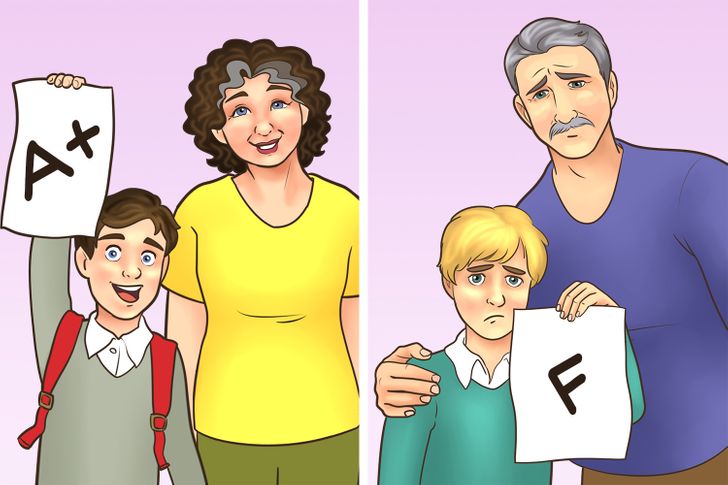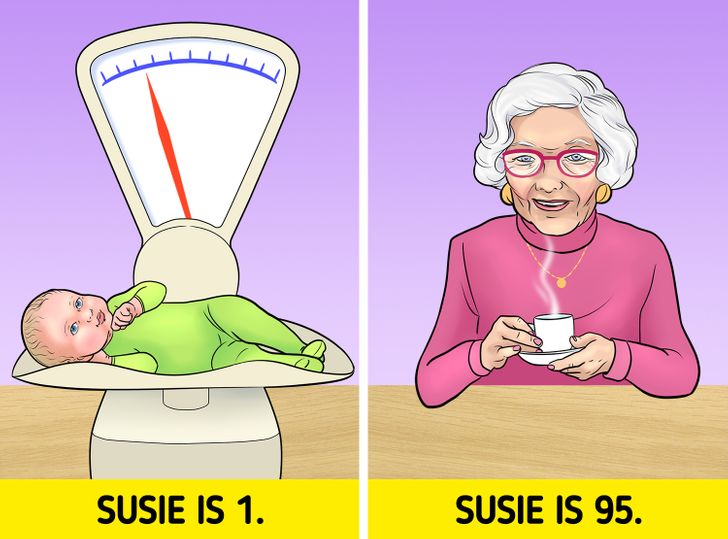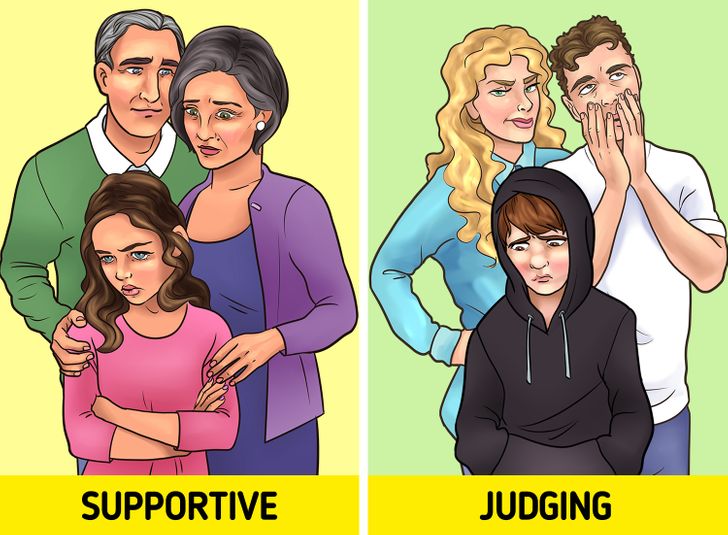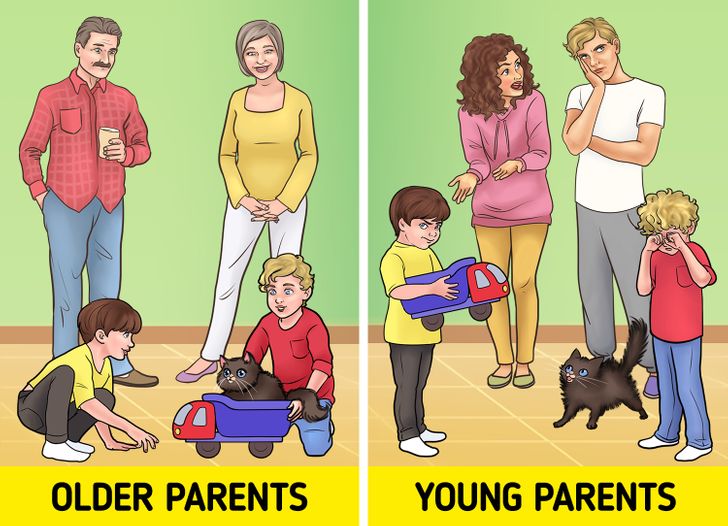The oldest known woman who became a mother gave birth at 74, while the oldest father was 96. Although these 2 people have definitely broken the status quo, studies have found that the average age of parents for the first time has increased significantly in recent years.
Although the delay in delivery was attributed to financial readiness and a desire to grow professionally, experts found that a child’s IQ can be affected if the mother or father is more mature.
We have found some interesting research showing us how children born to older parents can be affected mentally and emotionally by age differences.
Parents Play A Big Role In The Intelligence Of Their Children

Part of the intellect is really hereditary. Even if 20% -40% of a child’s intelligence is inherited, it is highly likely that two intelligent parents will raise one intelligent child.
However, recent studies have revealed that the age of the parents has a significant effect on the cognitive intelligence of their children.
In a couple in which the father is significantly older (over 50 years), it was found that there are higher risks of failing grades and lower level of education.
On the other hand, a child born to an older mother is more likely to have good intellectual development and better school performance.
A high IQ can be attributed to the possibility of having a mother with more life experience and a more successful career, which can help to stimulate the child intellectually in a positive way; while a poor IQ was found to be a possible result of genetic mutations that occur in older men.
The Parents’ Ages Can Have An Effect On The Physical Well-being Of A Child

Several studies have shown that older parents can be the cause of health risks and genetic mutations in their children, such as premature births and developmental disorders. Although this research may sound alarming, similar results have also been seen in young mothers under the age of 25.
In contrast, medical experts found that the older the mother, the less likely the child was to be injured or hospitalized.
Another study mentioned that children born to older parents are more likely to live longer and healthier lives because they have mutations that protect DNA, which can also be passed on to future generations.
Parents Have A Big Impact On The Mental Health Of Their Children

A great fear for the children of older parents and perhaps even the parents themselves is having to deal with someone’s death.
One study found that when parents conceive at older ages, especially in their late 40s and early 50s, the child is more likely to have to deal with the loss of parents at a young age, which can affect their mental health and wellness.
Despite this imminent reflection, experts explain that, as older parents are more likely to have more stability in their lives, their children will grow up in that same stability and, therefore, will have fewer mental health problems.
On the other hand, being a parent at a very young age can also have a negative impact on a child’s mental health. Younger parents were found to spend less quality time with their children due to work, which is related to negative effects on family relationships and children’s emotions.
In addition, children of adolescent parents have greater difficulty dealing with their emotions and behaviors because the parents themselves have not yet established themselves in life.
A Parent’s Age Can Be A Factor In A Child’s Social Life

It can be assumed that having an older father makes the child’s life socially difficult. However, studies say otherwise and report that children of older parents behave better and have fewer problems compared to their peers.
Research also suggests that children born to more mature parents are “less likely to break rules or be physically aggressive.”
How old were you when you had your first child? Do you think it was the ideal age for you to become a parent?


